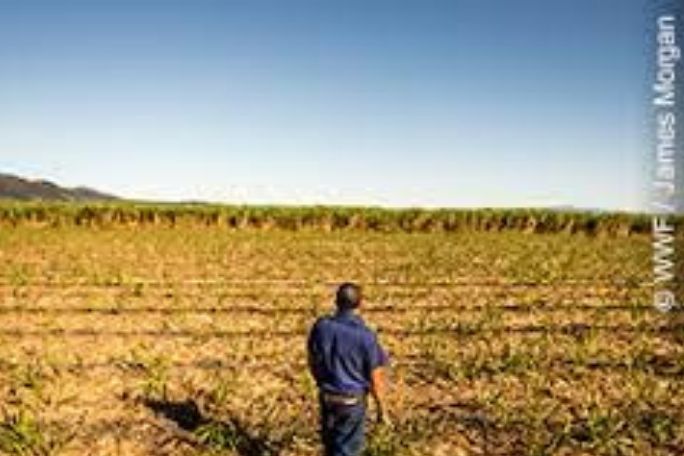Lesson summary
In this activity students learn about the concept of environmental footprints. They will learn how to measure their impact and take steps to reduce their personal footprint. Students make comparisons between the lifestyles of Aboriginal and Torres Islander peoples prior to colonisation and the current mainstream, considering the impact of consumerism on environmental footprints. This lesson
Learning intentions:
Students will...
- understand their impact on the Earth
- take responsibility for their personal actions
- compare the impact on our environment between the past resource use by Aboriginal and Torres Strait Islander peoples prior to colonisation and our current resource use.
Lesson guides and printables
Lesson details
Curriculum mapping
Australian Curriculum content descriptions:
Year 5 Geography:
- The influence of people, including Aboriginal and Torres Strait Islander Peoples, on the environmental characteristics of Australian places (ACHASSK112)
- The environmental and human influences on the location and characteristics of a place and the management of spaces within them (ACHASSK113)
Year 5 Science:
- Science involves testing predictions by gathering data and using evidence to develop explanations of events and phenomena (ACSHE081)
- Scientific knowledge is used to inform personal and community decisions (ACSHE083)
- Identify, plan and apply the elements of scientific investigations to answer questions and solve problems using equipment and materials safely and identifying potential risks (ACSIS086)
Year 6 Science:
- Science involves testing predictions by gathering data and using evidence to develop explanations of events and phenomena (ACSHE098)
- Scientific knowledge is used to inform personal and community decisions (ACSHE100)
- Use equipment and materials safely, identifying potential risks (ACSIS105)
Syllabus Outcomes: GE3-2, GE3-3, ST3-4WS, ST3-6PW.
Time needed: 60 – 120 mins
Resources required
- Magazines and newspapers
- Student Worksheet
Additional info
This activity has been created in partnership with WWF-Australia. Earth Hour is the world’s largest community-driven climate change campaign. At the centre of Earth Hour is switching off lights to show a commitment to taking action. Thousands of teachers use Earth Hour’s education program to enrich their curriculum and provide pathways for young people to create change in their world.
For the most up to date Earth Hour dates, times, and events, check here.


Welcome back!
Don't have an account yet?
Log in with:
By signing up to Cool.org you consent and agree to Cool's privacy policy to
store, manage and process your personal information. To read more, please see
our privacy policy here(Opens in new tab).
Create your free Cool.org account.
Many of our resources are free, with an option to upgrade to Cool+ for premium content.
Already have an account?
Sign up with:
By signing up to Cool.org you consent and agree to Cool's privacy policy to
store, manage and process your personal information. To read more, please see
our privacy policy here(Opens in new tab).